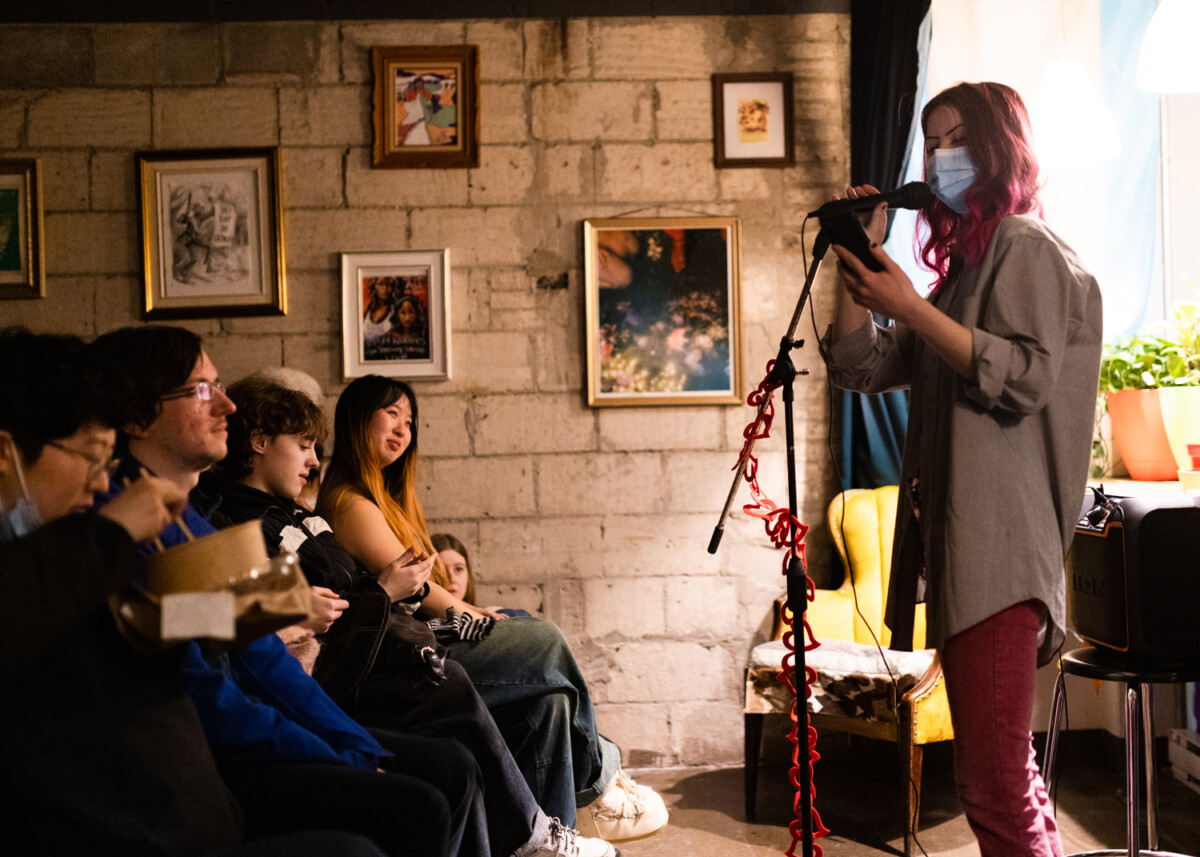Concordia student-run magazine launches love-themed poetry reading at Le Frigo Vert
On Feb. 9, the Concordia student-run pixie Literary Magazine and Soliloquies Anthology united to launch a poetry reading event on the topic of love, with the goal of expressing the understanding of love and its different forms.
Julia Bifulco, the founder and editor-in-chief of pixie indicated that her motive for doing the topic on love is the search for the meaning of the word love.
Bifulco was inspired by Canadian author Margaret Atwood’s poem “Variations on the Word Love.” She realized that people use the word love more than we used to. “But really, love is supposed to be the utmost passion that you can feel for something,” she said.
Modern love tends to evolve much more rapidly than it used to. With the flood of dating apps, love seems to be everywhere.
Bifulco recalled a conversation about dating apps that she had with her friend. “She told me that she doesn’t like dating apps because of the lack of power to converse, and it really makes me think about connections.”
The idea of trending on dating apps ties to some contemporary poetry. “Like trendy and instagram poetry,” Bifulco said. “Some of them are very desired, quick and easily digestible.”
With the great belief that contemporary poetry seeks to create a new poetic movement, Bifulco uses the word “Groundbreaking” to describe the young creative writers. “I hope people that are writing now are writing new fresh things,” she said. “The writing era we are living in is something that’s looked back on is iconic in the way the romantic period is.”
Jade Palmer, co-editor-in-chief of Soliloquies Anthology, referenced a poem the magazine published last year as an example of contemporary love. “The poem used a lot of chat-speak, things like ‘lol’ that you would not normally hear in a poem — that’s so based in our time. It’s such an interesting way to express love rather than saying someone looks like a flower.”
Ribs Beauchamp was one of the presenters at Thursday evening’s event. She is a third-year Concordia student majoring in film studies. “The media makes more types of love accessible, and it makes it easier to share and witness and recognize and talk about,” she said.
The theme of the poem she shared was her mother. “Female love is much different than male love, and that’s one of the biggest reasons my poem is about my mom,” Beauchamp said. “It is because she shares her love and she is not afraid to do it, women are raised as caretakers — it’s a lot easier for us to share love.”
